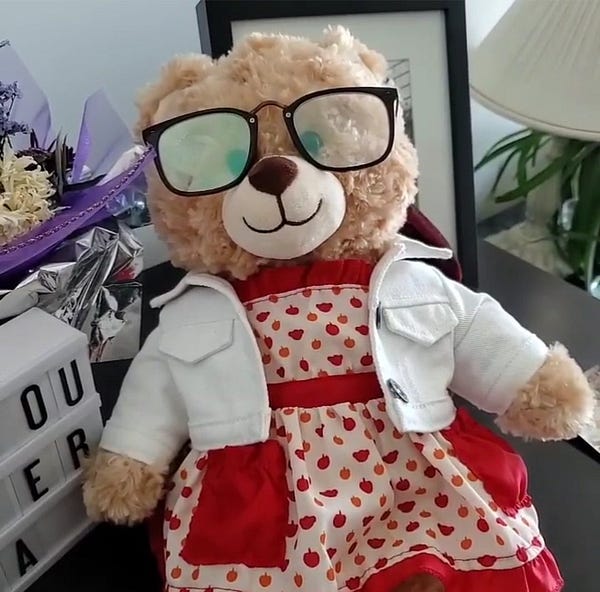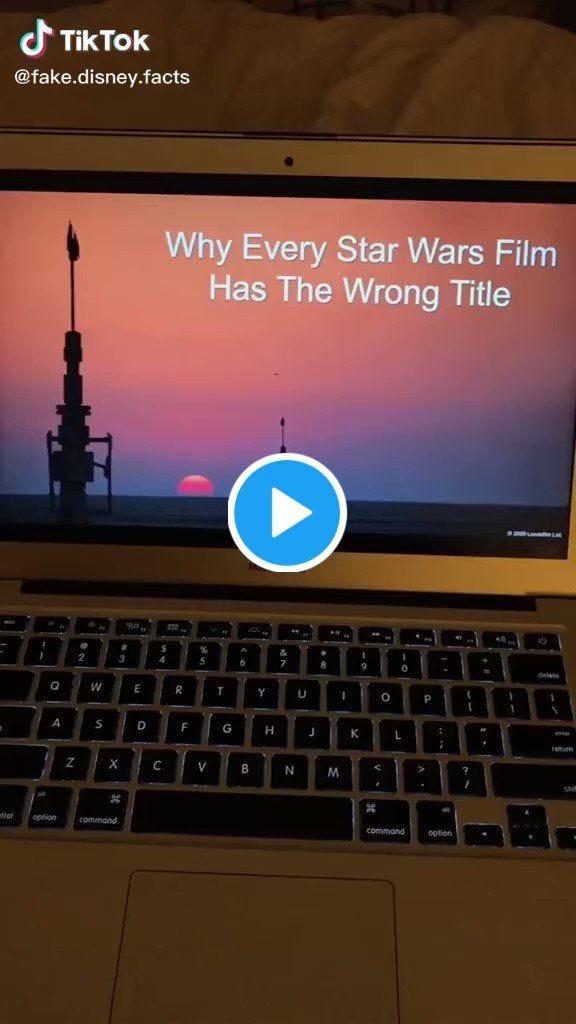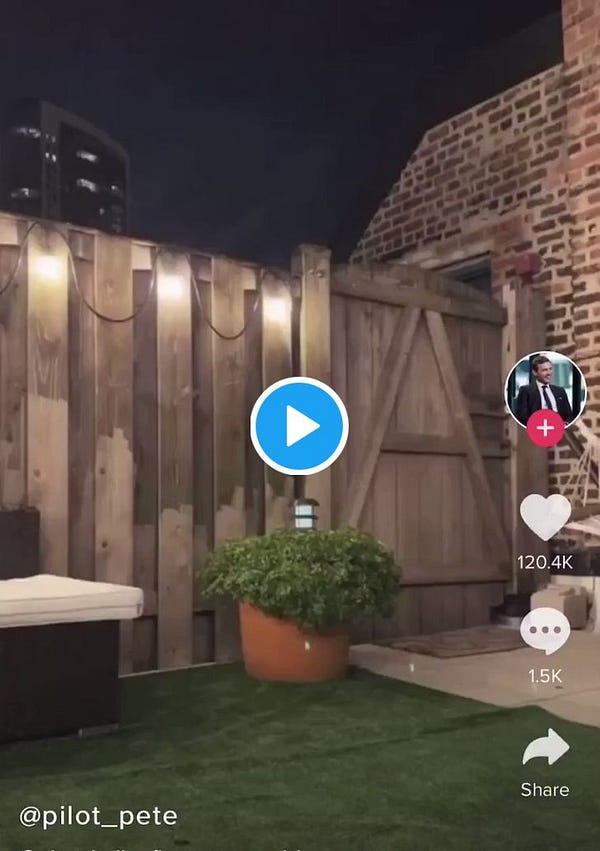EPISODE 529: ...PERHAPS THE DAY AFTER
...In which the author realizes he's way more likely to believe something if he hears it in a Broadway musical.

POP CULTURE SPIRIT WOW
So we’ve arrived at the “Ghost Friends” moment of the pandemic. Cool cool cool.
(Weirdly, there have been moments in the last four months when I’ve wondered what it would be like to be living in a haunted house right now. Would it be the ultimate nightmare or a chance to get past all the Booing and the Throwing Stuff and just try to understand each other?
THE HAUNTING 2020: MAKING FRIENDS, COMING SOON to nowhere near any of us.)
I’ve been listening to a lot of the musical version of Groundhog Day this week.
No idea why.

They’re starting to have back to school sales, you guys. 2020 is so strange.
Groundhog Day the musical didn’t generate the buzz it deserves. It has some truly beautiful moments, as well as a lot of humor. If you need a pick me up this week, here’s a couple songs that I really like, performed by the cast.
THERE WILL BE SUN
(This repeated lyric gives me such a boost even as it makes me laugh insanely: “Tomorrow there will be sun/Or if not tomorrow, perhaps the day after.”)
PLAYING NANCY
So you know how there’s often a character in movies, TV shows, musicals who is kind of the Love-Interest-To-Win-Over-The-Real-Love-Interest? She’s always quite pretty and winning, but she’s never really there to be a person with a real story?
There’s a character like that in Groundhog Day. And in the second act the actress playing her steps forward and delivers this song about always being cast to play that character
Australian song writer/actor Tim Minchin, who created the show, is a lyric genius.
SEEING YOU
Speaking of which, here’s the ending. It would be safe to say my Jesuit neighbors all know this song at this point, as well as the relative strengths and weakness of my performance.
(If anyone’s interested, here’s a bootleg of much of the production, too. The quality is not great, but it does give you a sense of the staging. (“Seeing You” gets cut off, but what you do get to see is pretty beautiful.)
When I’m not howling about weather forecasts, I’ve been reading. I finally started Robin Diangelo’s White Fragility, which looks at how white people’s self-conception makes it very difficult, if not nearly impossible for them to consider their own racism.
An interesting exercise you might try that gets at her main point: read that last sentence again.
Now consider this sentence:
This weekend I started Robin DiAngelo’s book White Fragility, which looks at how my self-conception as a white person makes it very difficult, if not nearly impossible for me to consider my own racism.
Which do you prefer? And why?
For me, it’s the latter for sure. That first sentence sounds like an accusation to me. You don’t know me, Jim McDermott.* To quote Kelly Kapoor:

If you reacted similarly, you have just had an experience of what DiAngelo means by “white fragility”. We could also call it “the fragility of privilege.” Most white people don’t have much experience dealing with race in a personal way, because the societies most of us live in have been built by and around the experiences of white people.
When I walk around there’s little or nothing making me aware of myself as white, let alone making me feel like that might be a problem. Being white is like being a brunette, or right handed, or able-bodied. Most of our societies** have been built for that.
We label that “privilege”, but it also makes us fragile insofar as we have no experience or tools at the ready for any real conversation about race. When the topic comes up, we feel very naturally out of our element and tend to get defensive. We’re like kids thrown into a lake and told to swim without ever having had lessons. It’s hard not to panic.
The kid analogy is useful, too, in the sense that the parts of ourselves that have not been forced to grow tend to have a certain immaturity of form to them. The fact that white people might literally throw temper tantrums at questions of racism kind of makes sense. When it comes to reflecting on or being aware of ourselves in a racial way, as having any sort of self-awareness of ourselves of being of a race, many of us are little more than infants.
In the spiritual life, defensiveness is actually a value. It’s like a lump in the sand; it tells me that something is buried there. Is it a body or is it treasure?
I think DiAngelo’s point is, it’s both. The mistaken assumptions and unconscious actions of white people like myself*** become a source of conversion once we bring them into the light where we can start to see them.
And until then they’re like a land mine too, and us expending all this energy maintaining the electrified barbed wire around it, and warping our sense of self and our relationships.
The same dynamics apply to other areas of privilege – we can talk about male fragility, straight or cisgender fragility, middle class fragility, mental health fragility. A lot of good stuff there to chew on.
* Actually I do, but never mind, we’ve got guests.
** I say most, thinking that some white people in the States and elsewhere do live and work in environments that are much more diverse, or where the dominant culture/race is not Northern European.
*** One of the other points that DiAngelo makes right from the jump is that in some ways the biggest problem are white progressives. Because we look at all the things we do in our lives, the causes we fight for and we say, we’re good people. Therefore we can’t be racists.
Our progressiveness suddenly becomes Perseus’ shield, something we wield to reflect back what we see as intended to destroy us, our own gaze of Medusa.
But if you’re hiding behind a shield you don’t have a clear perspective on much of anything. Also, using the fact that I support progressive causes to defend myself against the possibility that I might also be flawed or hurting people seems incoherent. Progressivism starts from a sense that things could be better.

This thread is disturbing and yet it’s hard to argue with.
Here let me course correct though:
You can’t call the first movie Return of the Jedi, but still, there’s some good thinking going on there. Maybe I need to check out TikTok after all?
You know what, never mind, I’m good.
The new Darth Vader comic, which is set after A New Hope, has just revealed that Vader had Boba Fett go looking for information about who blew up the Death Star, and Fett brought back one word, the pilot’s last name: “Skywalker.”
When you think about it, it really did not make any sense for Obi-Wan and Yoda to let Luke keep his real last name. Might as well have just called him Darthvadersson.
Finally, This Week in People Can Be Pretty Great
This thread is wonderful.


Also, there’s this:
As one commenter put it, “Nonna’s not playing around.”
And I can’t speak for the spider, but this definitely made me hungry.
As Tim Minchin puts it in “There Will Be Sun”:
Oh if I could I'd will these clouds away my love
I'd wave my hand, reveal the stars.Oh if I could I'd hold the tide at bay my love
But clouds will come and tides will turn…
The clouds and the tides might not be turning all that fast (ahem), but somehow hearing a bunch of Broadway actors sing their hearts out insisting on it I know that it’s true. Maybe you will too.
If not tomorrow…











